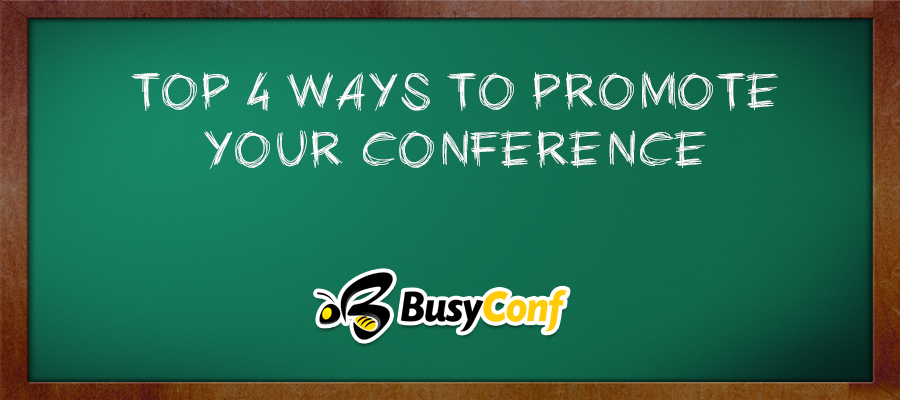
Good promotion is a necessary part of planning a great conference. With so many conferences being held, you have to promote your conference well in order to attract attendees. People need to know about your conference in order to attend, and promotion ensures that people interested in your conference are exposed to it. Here are 4 great ways to promote your next conference.
Promoting your conference using social media is a no-brainer. Social media allows you to communicate with people who would be interested in your conference with ease. Even if your conference is small and locally based, social media is a valuable tool. Twitter and Facebook allow you to share your location when posting. This will help you promote your conference locally.
In order to promote your conference with social media effectively, you need to optimize for sharing. That means ensuring that your ticket registration page and schedule can be shared easily. Your conference registration page should not be overly complicated and should have a good amount of information. Long and complicated registration pages hurt your ticket sales. If a potential attendee stumbles upon your ticket registration, you want them to know exactly what the conference is about.
Many conferences choose to use hashtags to promote their event. This is another great tool that you should be using. Hashtags not only help promote your conference but they help attendees network and share with each other even after the conference is over. Good conference hashtags are short and include the conference year. Remember, people only have 140 characters, and your hashtag should be only a small part of that.
"packages solve a lot of the problems people are choosing to solve with chef" - @postwait #chefconf2013 https://t.co/Bjloi1Lwhw
— Dr Nic (@drnic) May 25, 2013
#ChefConf2013 Revue Review: http://t.co/MGCd0eSgxj (Including some thoughts on the "word association game" we did & my favorite talks!)
— J. Paul Reed (@SoberBuildEng) May 16, 2013
Another new and exciting addition to the social media line up is Lanyrd, a social conference directory. Adding your conference to Lanyrd is absolutely necessary. The earlier you sign up, the better. With Lanyrd, potential attendees can discover your conference and other conferences relevant to their interests. People looking for conferences to attend can browse by topic and location.
Start planning and promoting your conference as early as you can. This gives attendees more exposure to your conference and more time to prepare for it. When you start early, you can sell early bird tickets at a discount to encourage more registrations. Starting early also gives you more time to build a social media presence and plan the best conference possible.
Blogging is a great way to keep people updated on your conference. You should blog about your conference and about the industry. If you’re planning a conference on education, it is a good idea to share news on education technology and blog on how you’re planning your conference. Did a new speaker commit to your conference? Blog about it.
Having a blog is also valuable for social media. Every time your blog post is shared via Twitter or Facebook, your conference is promoted. Blogging can also help increase the search engine visibility of your conference. When someone searches for a conference on a specific topic, you want them to see your event website. This will help increase attendance at your event.
Most conference planners know that allowing companies to sponsor your event will give you a larger budget, but the promotional benefits of a sponsorship are often overlooked. When a company or organization sponsors you, their success is tied to your success, and they will do whatever they can to help promote your event. Most sponsors will actively promote your event on their social media pages. If one of your sponsors is not doing this, chances are they will gladly do so if you ask them to. The larger your event is, the more promotion your sponsors get.